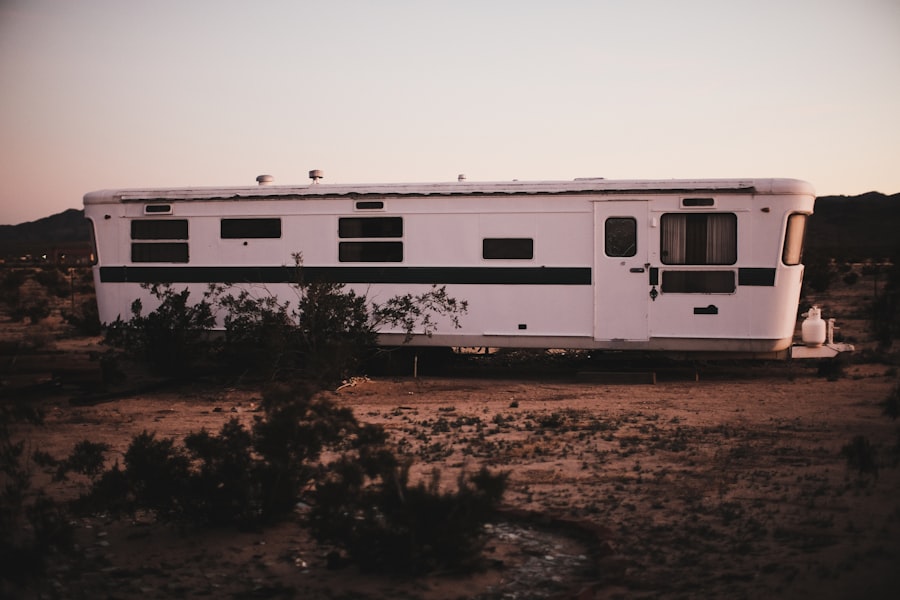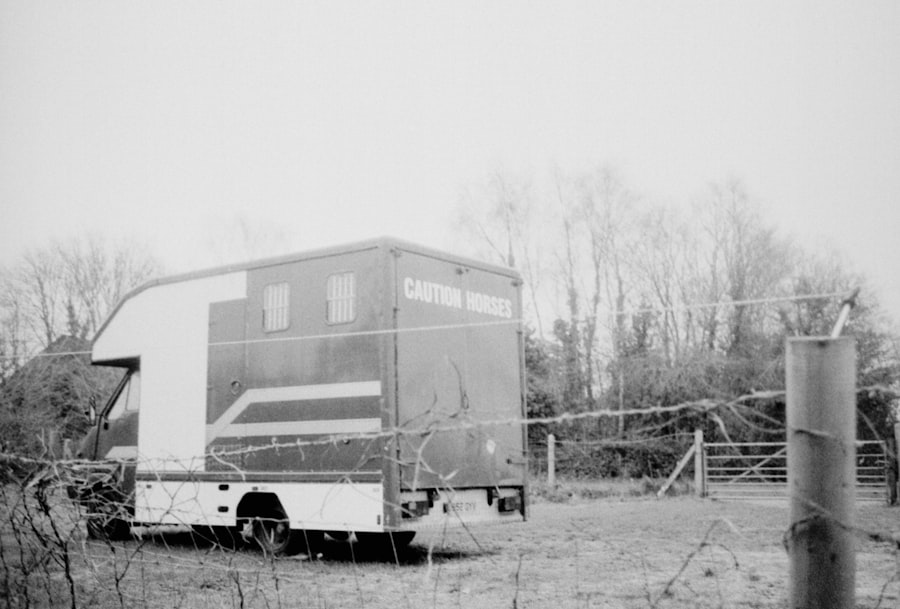Rent-to-own trailer homes represent a unique intersection of housing flexibility and ownership potential, appealing to a diverse range of individuals and families. This model allows tenants to rent a trailer home with the option to purchase it after a predetermined period. The arrangement typically involves a portion of the monthly rent being credited toward the eventual purchase price, making it an attractive option for those who may not have the immediate financial means to buy a home outright.
This system can be particularly beneficial in the context of trailer homes, which often serve as affordable housing solutions in various regions. The concept of rent-to-own is not new, but its application in the trailer home market has gained traction due to rising housing costs and the increasing demand for affordable living options. Many people find themselves in situations where traditional home buying is out of reach due to high down payments or stringent credit requirements.
Rent-to-own arrangements can provide a pathway to homeownership that is more accessible, allowing individuals to live in their future home while they work toward purchasing it. This model also offers a sense of stability and community, as tenants can establish roots in a neighborhood while planning for their financial future.
Key Takeaways
- Rent-to-own trailer homes offer a flexible path to homeownership with options to build equity over time.
- These homes allow for customization and personalization, making them feel more like a traditional home.
- Financial benefits include lower upfront costs and the ability to lock in purchase prices while renting.
- Living in rent-to-own trailer parks fosters a strong sense of community and a unique lifestyle.
- Potential drawbacks include careful consideration of contract terms and the importance of thorough research before committing.
Flexibility and Freedom of Rent-to-Own Trailer Homes
One of the most significant advantages of rent-to-own trailer homes is the flexibility they offer. Unlike traditional home purchases, which often require long-term commitments and substantial upfront investments, rent-to-own agreements allow individuals to test out a living situation before fully committing to it. This flexibility can be particularly appealing for those who may be uncertain about their long-term plans, such as young professionals, families in transition, or retirees looking to downsize.
The ability to live in a space while having the option to buy provides a unique opportunity to assess whether the location and lifestyle align with one’s needs. Moreover, rent-to-own arrangements often come with less stringent requirements than traditional mortgages. This can be especially beneficial for individuals with less-than-perfect credit or those who are self-employed and may struggle to meet conventional lending criteria.
The freedom to negotiate terms directly with the seller can also lead to more personalized agreements that cater to individual circumstances. For instance, some sellers may be willing to adjust the purchase price based on market conditions or offer incentives such as reduced rent during the initial rental period, making it easier for potential buyers to transition into ownership.
Building Equity with Rent-to-Own Trailer Homes

Building equity is a fundamental aspect of homeownership, and rent-to-own trailer homes provide a unique pathway for tenants to accumulate equity over time. In a typical rent-to-own agreement, a portion of each monthly payment is allocated toward the eventual purchase price of the home. This means that as tenants make their monthly payments, they are not just paying rent; they are also investing in their future ownership stake.
Over time, this can lead to significant equity accumulation, especially if property values increase during the rental period. For example, consider a scenario where a tenant enters into a rent-to-own agreement for a trailer home valued at $50,000. If the agreement stipulates that $300 of each monthly payment goes toward the purchase price, after three years of consistent payments, the tenant could potentially have $10,800 credited toward their equity.
If property values rise during that time, the tenant not only benefits from their investment but also gains from any appreciation in value, making their eventual purchase even more advantageous. This dynamic creates an incentive for tenants to maintain and care for the property, as their efforts directly contribute to their financial investment.
Customization and Personalization in Rent-to-Own Trailer Homes
| Metric | Description | Typical Range | Impact on Rent-to-Own Trailers |
|---|---|---|---|
| Customization Options Available | Number of features or upgrades customers can select (e.g., flooring, cabinetry, appliances) | 5 – 15 options | Higher options increase customer satisfaction and perceived value |
| Personalization Lead Time | Time required to implement custom features before delivery | 1 – 4 weeks | Shorter lead times improve customer experience and reduce wait |
| Additional Monthly Cost for Customization | Extra monthly payment added to rent for personalized features | 10 – 50 per month | Moderate increases can be acceptable if value is clear |
| Customer Satisfaction Rate | Percentage of customers satisfied with customization options | 75% – 90% | Higher satisfaction correlates with better retention and referrals |
| Customization Impact on Resale Value | Percentage increase in resale or buyout value due to upgrades | 5% – 20% | Custom features can enhance asset value at contract end |
| Most Popular Customization Features | Top requested upgrades by customers | Energy-efficient appliances, upgraded flooring, smart home tech | Focus on these features can drive higher uptake |
Customization is another appealing aspect of rent-to-own trailer homes that sets them apart from traditional rental properties. Many landlords may impose restrictions on modifications in standard rental agreements; however, rent-to-own arrangements often allow tenants greater freedom to personalize their living spaces. This can range from simple aesthetic changes like painting walls or landscaping around the trailer to more significant renovations that enhance functionality and comfort.
For instance, a family renting a trailer home might choose to install additional storage solutions or upgrade appliances as part of their plan to eventually purchase the home. Such improvements not only make the living space more enjoyable but also increase its overall value when it comes time for the tenant to buy. This level of customization fosters a sense of ownership and pride in one’s living environment, which can be particularly important for families looking to create a stable home life.
Financial Advantages of Rent-to-Own Trailer Homes
The financial advantages of rent-to-own trailer homes extend beyond just building equity; they also encompass lower initial costs and potential savings over time. Traditional home buying often requires substantial down payments—typically ranging from 3% to 20% of the home’s value—along with closing costs that can add thousands of dollars to the upfront expense. In contrast, rent-to-own agreements usually require minimal upfront investment, making them accessible for individuals who may not have significant savings.
Additionally, because part of the monthly rent contributes toward the purchase price, tenants can effectively lock in a price for their future home at today’s market rates. This can be particularly advantageous in rapidly appreciating markets where property values are expected to rise significantly over time. By securing a rent-to-own agreement, tenants can avoid potential price increases that would otherwise make homeownership unattainable in the future.
Community and Lifestyle in Rent-to-Own Trailer Parks

Living in a rent-to-own trailer park often fosters a strong sense of community among residents. Many trailer parks are designed with social interaction in mind, featuring communal spaces such as playgrounds, picnic areas, and community centers where residents can gather for events and activities. This environment encourages neighborly relationships and support networks that can enhance the overall quality of life for families and individuals alike.
Moreover, trailer parks often attract diverse populations, including young families, retirees, and individuals seeking affordable housing solutions. This diversity can lead to rich cultural exchanges and shared experiences that contribute to a vibrant community atmosphere. Residents may organize social events such as potlucks or holiday celebrations, further strengthening bonds among neighbors and creating a sense of belonging that is sometimes harder to find in more traditional housing developments.
Considerations and Potential Drawbacks of Rent-to-Own Trailer Homes
While rent-to-own trailer homes offer numerous benefits, there are also important considerations and potential drawbacks that prospective tenants should keep in mind. One significant concern is the risk associated with market fluctuations. If property values decline during the rental period, tenants may find themselves paying more than the current market value when it comes time to purchase the home.
This scenario could lead to financial strain or even deter tenants from completing the purchase altogether. Additionally, not all rent-to-own agreements are created equal; terms can vary widely between sellers. It is crucial for potential buyers to thoroughly review contracts and understand all stipulations before entering into an agreement.
Some contracts may include hidden fees or unfavorable terms that could complicate the purchasing process later on. Engaging legal counsel or real estate professionals can help navigate these complexities and ensure that tenants are making informed decisions.
Steps to Take When Considering Rent-to-Own Trailer Homes
When considering a rent-to-own trailer home arrangement, prospective buyers should take several key steps to ensure they make informed choices. First and foremost, conducting thorough research on available properties is essential. This includes understanding local market conditions, comparing prices with similar homes in the area, and assessing the reputation of potential sellers or landlords.
Once suitable properties have been identified, it is advisable to engage in open discussions with sellers about terms and conditions. Prospective buyers should inquire about how much of their monthly payment will go toward equity accumulation and clarify any additional costs associated with the agreement. It is also wise to request documentation regarding property maintenance responsibilities and any restrictions on modifications.
Finally, before signing any contracts, seeking professional advice from real estate agents or legal experts can provide valuable insights into the implications of entering into a rent-to-own agreement. By taking these steps, individuals can better position themselves for success in navigating the complexities of rent-to-own trailer homes while maximizing their chances of achieving long-term homeownership goals.



